Have you considered using cardboard to help prevent weed growth and keep pests at bay, but you're not sure if plant bulbs will grow through it properly? Well, you've come to the right place. We've done the research and gathered all the answers in one place to save you time.
Bulbs can grow through cardboard under the right circumstances, but it's not always the best choice for gardening. If the right type of cardboard is used and it decomposes enough in time for the bulb to push through during the growing season, it will work fine.
You're probably wondering what the right kind of cardboard is, and what types of cardboard you should avoid. Also, are there other options you can use to block weed growth without the risk of blocking your bulbs too? Keep reading to learn all about the gardening materials to use with bulbs.
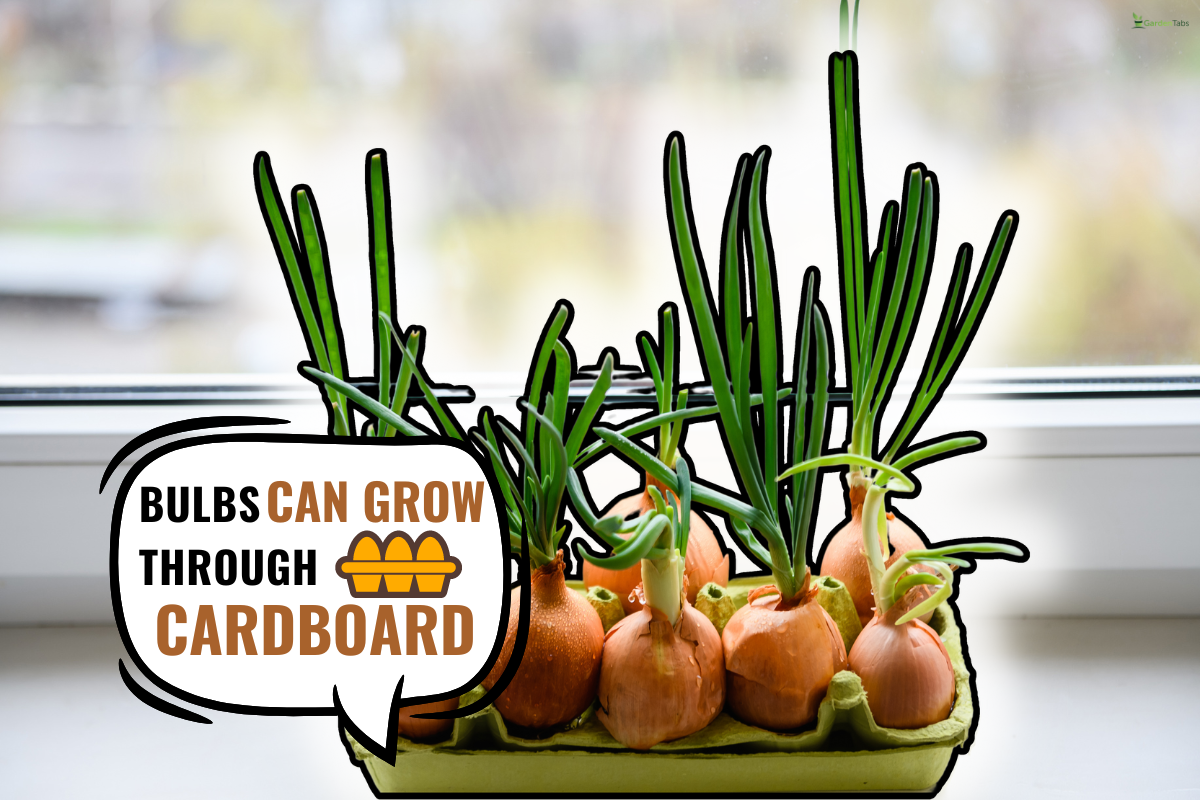
Can You Use Cardboard In The Garden?
Cardboard can be a wonderful tool in the garden for many different situations. It works very well to help block weed and plant growth, and covering the cardboard in mulch can dress it up too.
A lot of cardboard is also biodegradable so it will naturally break down over time and add nutrients to the garden bed.
Cardboard is a great choice for any area that you want to keep completely free of weeds or plants altogether. For example, using cardboard underneath an evergreen shrub will prevent unwanted plants from growing in a difficult-to-weed area.
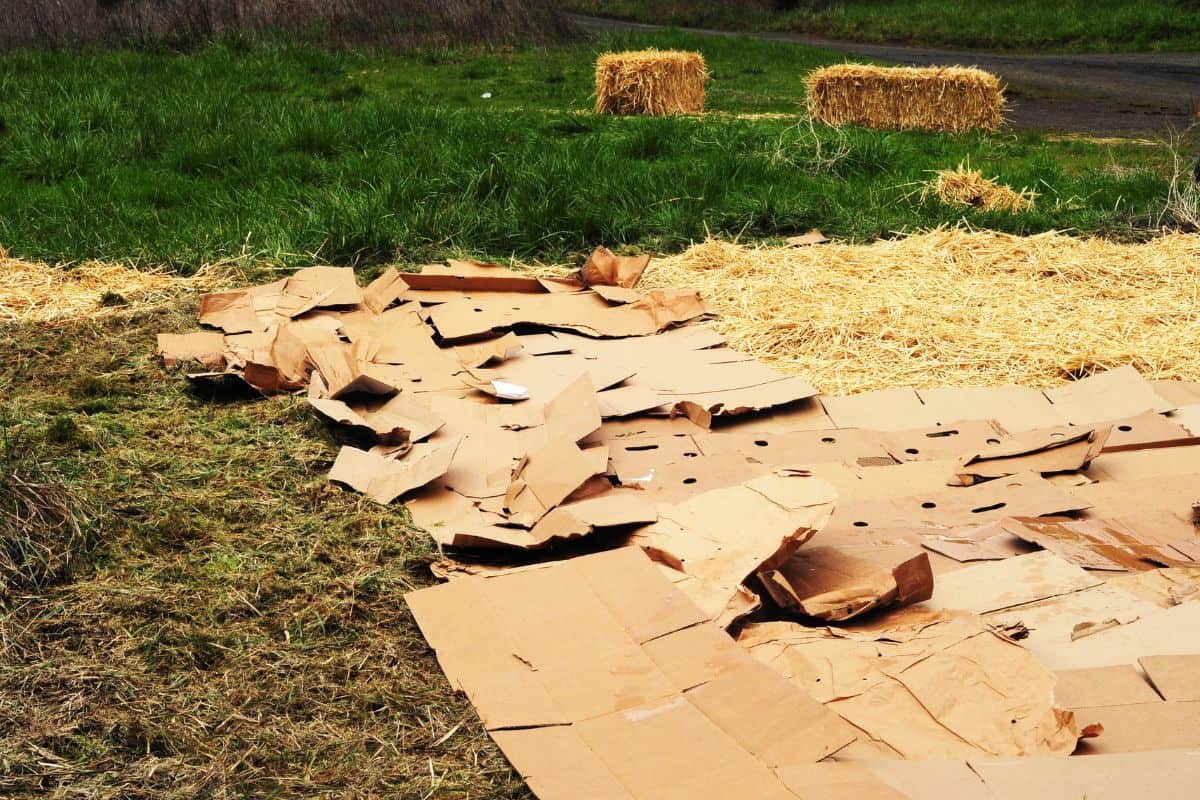
How Long Does It Take For Cardboard To Break Down In Soil?
Natural cardboard without any lamination will take 6-8 months to decompose into the soil if it is exposed to the elements.
Some thin types of cardboard will break down a little faster, but this is a safe estimate for most varieties of cardboard. The thicker the cardboard is, the longer it will take to break down.
What Are The Downsides Of Using Cardboard In The Garden?
Cardboard can attract slugs and snails, who will enjoy the dark, moist soil underneath the cardboard. These garden pests will happily munch on a variety of flowers and vegetables.
Cardboard has also been known to attract termites, which can be a major problem if the garden bed in question is close to the house.
Will Bulbs Grow Through Newspaper?
Yes, bulbs can grow through newspaper.
In fact, newspaper is superior to cardboard when growing bulbs because it is much thinner and decomposes much more quickly. Bulbs will be able to push through the newspaper much more easily, resulting in stronger, healthier plants.
Newspaper only takes between 2-6 weeks to fully decompose, so you may need to re-apply newspaper during the growing season to keep the weeds at bay.
Will Bulbs Grow Through Landscape Fabric?
Landscape fabric is a strong material that will reduce the growth rate of bulbs. It prevents the plants from sprouting properly because they can't grow through the material.
If you use landscape fabric, you need to cut holes in the area where plants will be sprouting to give them the best chance at survival.
ECOgardener Landscape Fabric
This landscape fabric is great to prevent weed growth, and you can cut it to allow growth where you want it. This 3-foot by 50-foot roll is enough to get started on your project.
Click here to see this landscape fabric on Amazon.
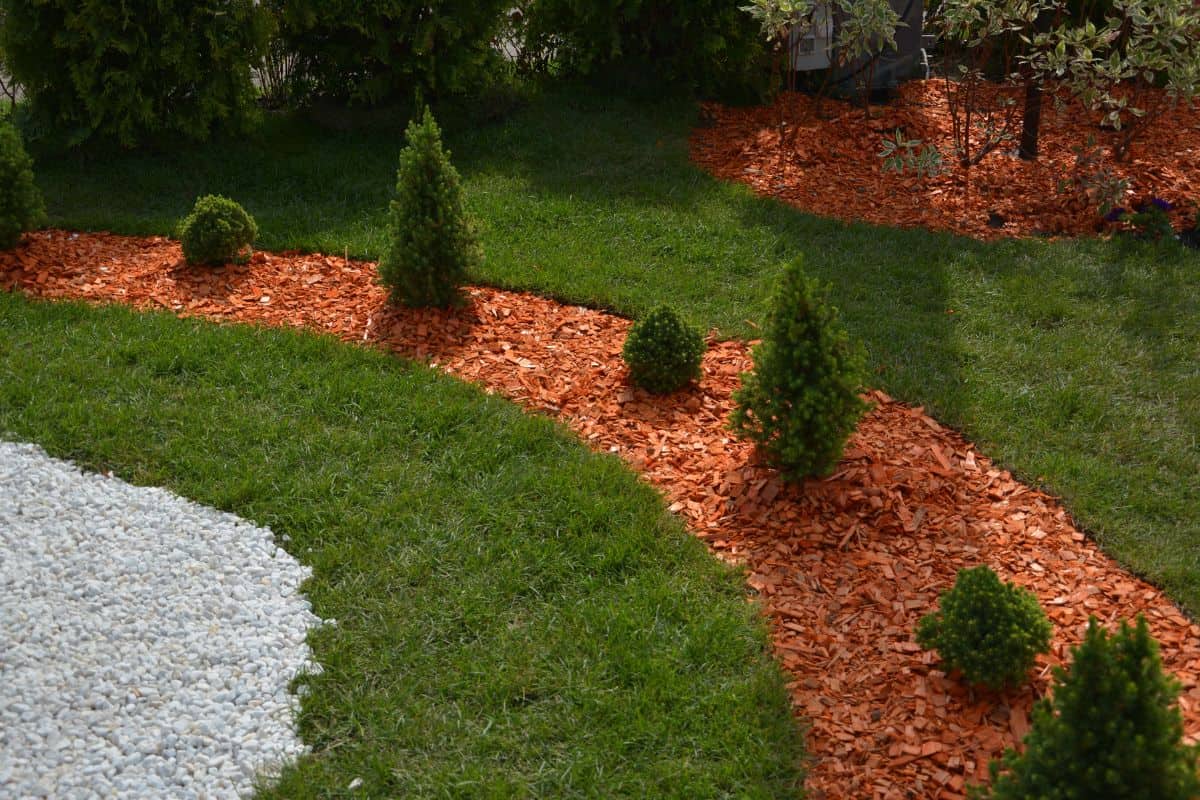
Will Bulbs Grow Through Mulch?
Yes, mulch is a great way to give your bulbs a good start in the garden. Most weeds will struggle to grow through mulch due to its weight, but bulbs will be able to grow through it very well.
Mulch is another natural option that decomposes over time and adds valuable nutrients back into the soil.
Wood Smith USA 100% Natural Cedar Chips
Cedar mulch will help deter certain pests from your garden with its strong smell, and it takes a little longer to decompose than other wood species, providing a more lasting coverage.
These bags of mulch are sold in a variety of sizes, making it easy to get the right amount for your project.
Click here to see this mulch on Amazon.
Will Bulbs Grow Through Rocks?
Bulbs can grow through small pebbles and stones or finely crushed gravel. Large, heavy stones and rocks should be avoided because they will block the bulb's growth.
When using rocks it's also important to avoid compacting the substrate, this will make it even more difficult for the plant to push through. Keep the rocks loose and easy to shift to give the plants their best chance.
Midwest Hearth Natural Decorative Bean Pebbles
These tiny rocks are perfect for landscaping and they're available in a variety of sizes to meet the needs of your project.
These completely natural stones have no negative effect on the environment and they don't decompose so they last a very long time.
Click here to see these landscaping pebbles on Amazon.
Is Cardboard Toxic To Plants?
Natural brown cardboard without any color, laminates, waxes, or other additives and chemicals is perfectly safe to use in the garden.
Never use cardboard that has any sort of color or decoration, as the additives used to create these are usually toxic and bad for the environment.
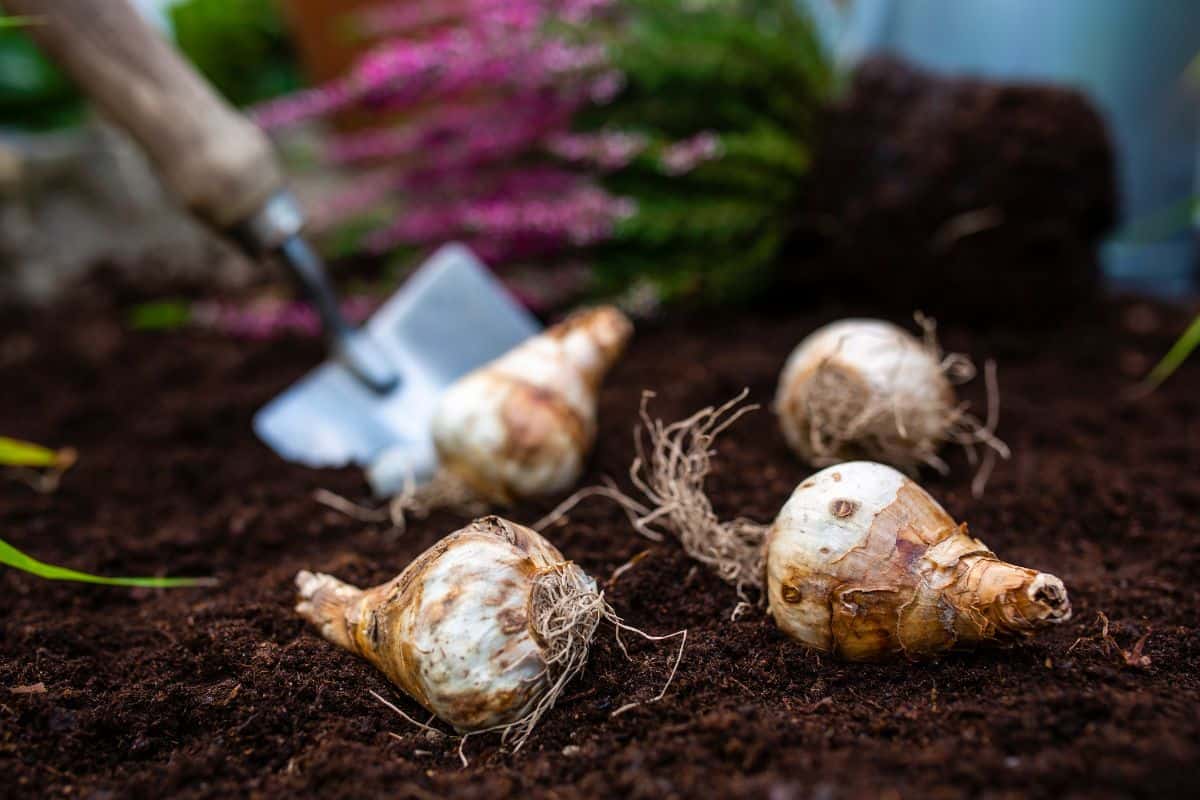
Do Bulbs Have To Be Covered?
As long as you cover your bulbs with soil they will grow successfully. Additional layers of cardboard, mulch, and other gardening materials aren't necessary.
In areas with harsh winter conditions, it can be beneficial to use mulch, but even a thick layer of leaves is enough to keep the plant healthy.
Using covers like cardboard and mulch is more useful in preventing weeds from growing into your garden, but doesn't do much to help bulbs grow.
Are There Bugs That Live In Cardboard?
Yes, some bugs and other pests are attracted to cardboard and even thrive in the living conditions created by it.
Slugs and snails enjoy the moisture and shade created by cardboard. Silverfish live in dry cardboard, and mice and other rodents use cardboard for nests and bedding.
Cockroaches also love cardboard, both wet and dry, and they are highly attracted to the material.
Can You Bury Bulbs Too Deep?
It's very important to follow the planting instructions provided with the bulbs or to research the species so you know how deep to plant it.
Burying your bulbs too deep can cause the bulb to rot, killing the plant and preventing any growth. It could also cause a delay in growth, making it unlikely to sprout when it is supposed to, shortening the plant's growing season.
How Long Do Bulbs Last Unplanted?
Bulbs will stay viable for up to a year if stored properly. It's generally recommended to plant your bulbs within 6 months of them being harvested from the mother plant.
The sooner you can plant them, the better their growth rate and root establishment will be. If your bulbs are older than a year you can try to plant them, but the chances of growth are lower now.
Willard & May 100-Flower Bulb Variety Pack
This pack of 100 flower bulbs comes with a beautiful variety of different flowers that will bloom in the spring. These bulbs should be planted in the fall or early winter for the best results.
Click here to take a look at these bulbs on Amazon.
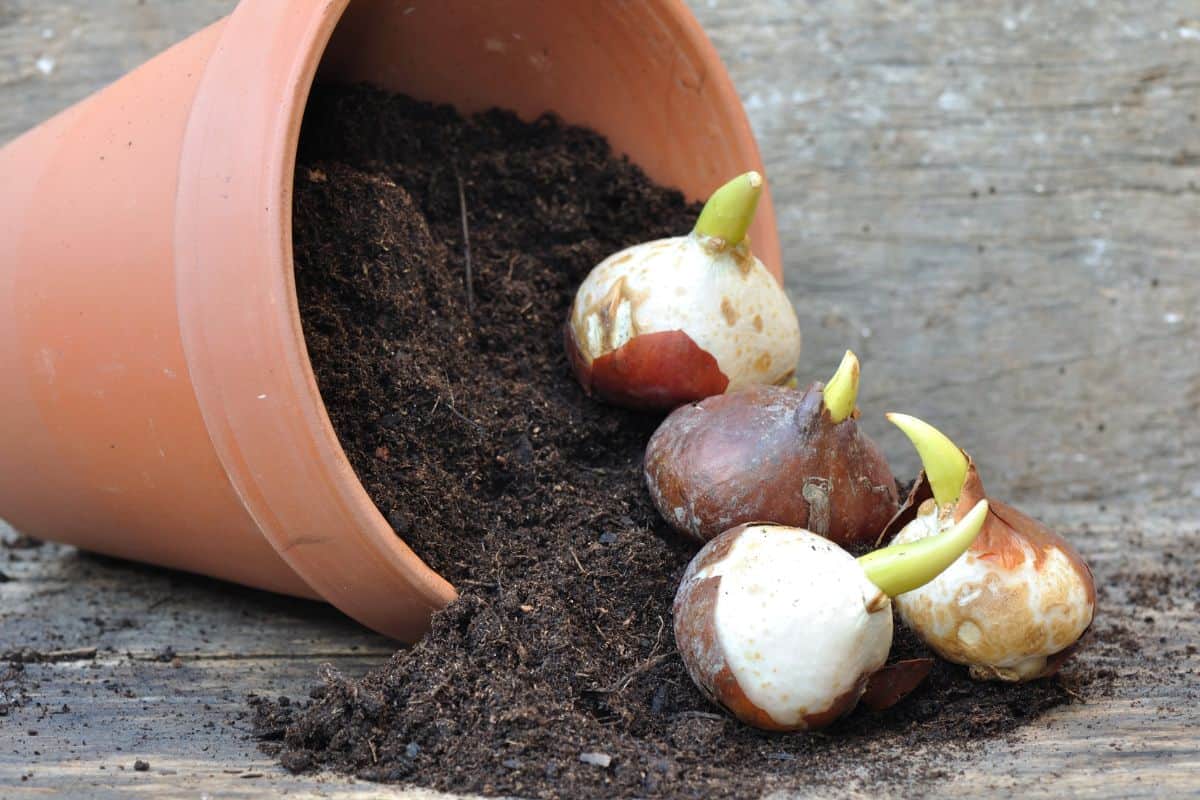
How Many Bulbs Do You Plant In One Hole?
Always follow the planting instructions provided with the bulbs in question. In most circumstances, it is recommended to place between 3 and 7 bulbs in every hole.
This number will largely depend on the type of plant you're working with, so do your research on the species. You also need to consider whether you will use these plants for bouquets or if they're strictly for landscaping since the rules differ.
Should I Soak A Bulb Before Planting It?
It's not necessary to soak bulbs before planting them, but you should water them immediately after planting. If you're planting the bulb later in the season than you intended, soaking it could help it root quicker. Allow it to sit in a glass of room temperature water for between 24 and 48 hours, then plant as normal.
In Conclusion
Now that you know all about planting bulbs and what type of cover to use as a way to prevent weeds, you're ready to start planning your project. Don't forget to compare the differences between each type of barrier and determine which makes the most sense for you. Good luck with your project, and enjoy your refreshed outdoor space.
You May Also Enjoy These Similar Articles...




